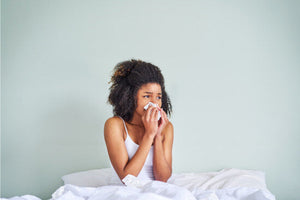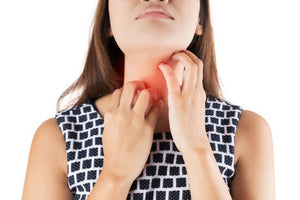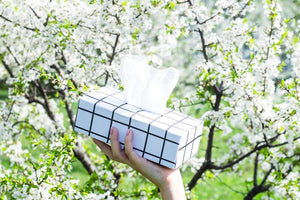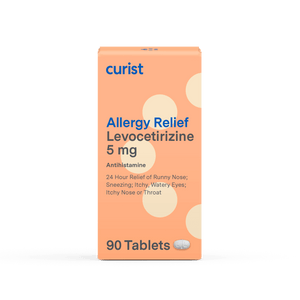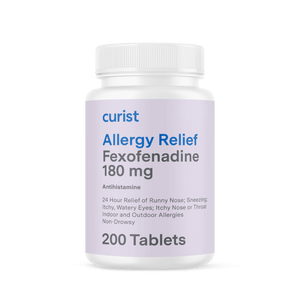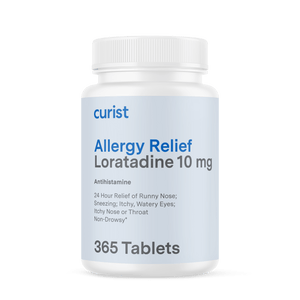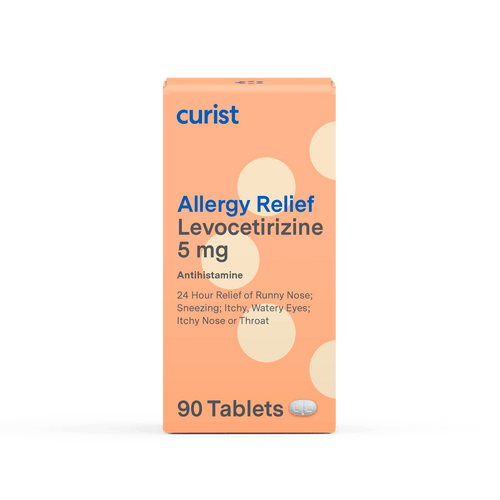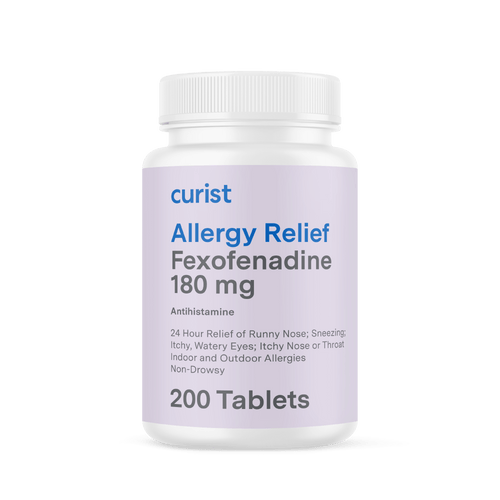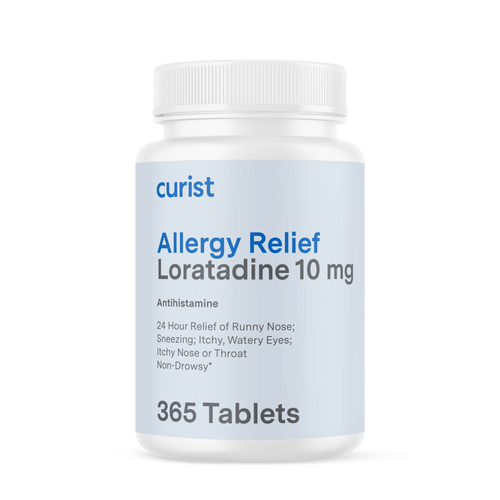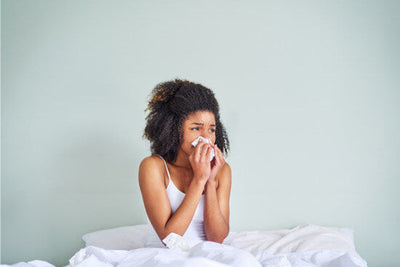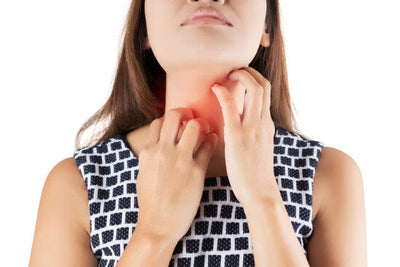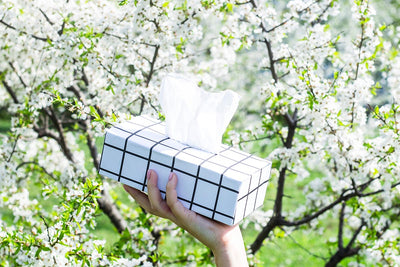by Dr. Waverly Yang, PharmD, Curist Pharmacy Advisor, and Dr. Marc Goldstein MD, Curist Medical Advisor.
Curist delivers over-the-counter medicines to your door at a fraction of the price of traditional brands. We hope everyone stays safe and healthy during this time.
Millions of Americans are watching themselves and their loved ones for potential symptoms of the novel coronavirus (known as SARS-CoV-2). With the allergy season here, many Americans will likely experience seasonal allergy symptoms, some of which may cause anxiety about whether the symptoms are signs of coronavirus (COVID-19).
Are Itchy Ears or Itchy Ear Lobes a Symptom of Coronavirus (COVID-19)?
According to the Centers for Disease Control and Prevention (CDC), coronavirus (COVID-19) symptoms include:
- Fever or chills
- Cough
- Shortness of breath
- Difficulty breathing
- Fatigue
- Body aches
- New loss of taste or smell
- Sore throat
- Congestion or runny nose
- Nausea or vomiting
- Diarrhea
Itchy ears and itchy ear lobes, however, are not a reported symptom of coronavirus (COVID-19). In the absence of the aforementioned common coronavirus (COVID-19) symptoms or recent contact with someone who may be infected with coronavirus, it is unlikely that someone experiencing itchy ears alone has coronavirus (COVID-19).
So Why Are My Ears Itchy: Allergies or Ear Infection?
The most common culprits for itchy ears include allergies, followed by ear infection, skin eczema or earwax buildup. Allergies are the most common cause for itchy ears. Allergies may also be accompanied by sneezing, runny or stuffy nose, watery eyes, or itchy eyes. While allergy symptoms can sometimes be confused for coronavirus infections, itchy ears have not been a reported symptom of coronavirus (COVID-19).
To learn about other allergy symptoms, check out:
- Allergies vs Coronavirus
- Sneezing and Coronavirus (COVID-19)
- Itchy Throat and Coronavirus (COVID-19)
- Itchy Nose and Coronavirus (COVID-19)
- Itchy Tongue
- Itchy Skin & Chronic Hives
- Runny Nose
Ear infections, as well as upper respiratory infections from common cold viruses and flu (but not COVID-19), may similarly cause inflammation that creates an itchy feeling in your ears. Having earwax buildup can also cause irritation and itching in your ears, as well as a temporarily reduced hearing ability.
What About Itchy Ear Lobes and Itchy Outer Ears?
Itchy ear lobes and itchy outer ears are both symptoms of allergies, particularly contact allergies from metals or sunscreens or from skin eczema. Itchiness from non-allergy related ear infections or earwax buildup are less likely to cause itchiness in the ear lobe or outer ear. Neither itchy ear lobes nor itchy outer ears have been reported as coronavirus (COVID-19) symptoms.
What's the Best Medicine to Treat Itchy Ears from Allergies?
Finding relief for your itchy ears may depend on what’s causing the itching in the first place. It’s important to NOT stick anything into your ears (cotton tips, tweezers, etc.) as they can cause damage to the ear canal and ear drum. Here are a few things you can do instead:
- Allergies: If you think the itchiness may be caused by allergies, the best form of relief is taking an antihistamine, like non-drowsy Curist Allergy Relief.
- Ear infection: If your ears have also been feeling hot and painful to the touch, leaking discharge or fluid, or experiencing hearing loss, then please contact your doctor about getting treatment.
- Earwax buildup: There are a few OTC ear wax removal products and ear drops that may help remove mild buildup. However, if OTC options aren’t helping, your doctor may help remove heavier buildup at their office.
What Can I Do To Protect Myself and Others From Getting COVID-19?
To minimize the spread of coronavirus, it’s very important to practice the following steps to protect yourself and others:
- Wash Your Hands. Wash your hands frequently with soap and warm water for at least 20 seconds. If you don’t have access to a sink, you can also clean your hands with a hand sanitizer made of at least 60% alcohol.
- Social Distance. If possible, practice social distancing to protect yourself and minimize the spread of the coronavirus to others. If staying home isn’t an option, then try to keep a 6-foot distance between yourself and others, avoid touching hard surfaces, and wash your hands often.
- Wear a Mask. Wear a mask to reduce the spread of airborne droplets that carry coronavirus.
- Treat Your Allergies. The discomfort of allergies can cause you to touch your face, nose, and mouth more frequently than usual. It’s important to avoid touching your face, and treating your allergies makes this easier. Take the Curist Two-Minute Allergy Quiz to help find allergy medicine that works to treat your itchiness.
- Seek medical attention. If you begin experiencing fever, cough, or shortness of breath, or have been in contact with someone diagnosed with coronavirus (COVID-19), reach out to your doctor about getting tested for COVID-19.
For more information about coronavirus, please visit the CDC website. As always, if you are not feeling well, please reach out to your medical provider or call 911 for medical emergencies.

